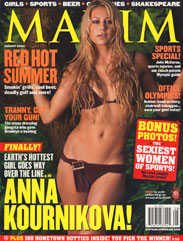News junkie to lead Daily
Christine Stanley
Editor in Chief
November 23, 2005
The NT student publications committee named Zachary Austrew, Dallas senior, editor in chief of the spring 2006 Daily on Tuesday. He will take charge of the paper Dec. 3.
Austrew, a photojournalism major, has worked for the Daily in several capacities since 2002, first as a Daily reporter during the fall 2004 semester, then as special sections editor for the summer 2004 Daily.
He assisted in front page design and served as managing editor of the summer 2005 Daily and is currently the Daily’s design editor.
The former art major said he became a news junkie after the Sept. 11 attacks, and his love for journalism has grown since.
“The culture is addictive,” Austrew said.
“I really like being able to communicate and educate, because that’s what I was craving everyday.”
He said he got his feet wet by writing a news story on NT’s record number of tenure denials in 2004.
“It was hard as hell,” Austrew said.
“A paper isn’t radio or TV. We can’t tell a story in 30 seconds. It puts extra pressure on you.”
But he came back for more and has climbed the ranks at NT’s Aerie’s yearbook too. He started as a part-time photographer in the spring of 2002, then moved up to head photographer the next semester.
He took over as Aerie photo editor in fall 2003 and stayed in that position for two years.
Austrew said his biggest challenge will be leading the Daily’s staff next spring.
“It’s a big operation,” he said.
“One of my philosophies is that I set the table for the people who are working for me to succeed. I want to find all of our very best reporters, editors and photographers and help them rise, much like yeast, to the top of their fields.”
He said he’s also looking forward to communicating with the campus.
“On campus, it’s (the Daily) the most important communication device,” Austrew said. “The Daily has a very long, well established history, and it’s an honor to carry the torch.”
Austrew is known by the Daily staff and many of his professors to have an incredible zeal for news.
“I am pretty intense about the news,” he said, in between sips of his Red Bull.
Michael Walter, St. Charles, Mo., senior, was Austrew’s editor in chief during the summer 2005 semester.
“Without Zach on staff, I don’t know how I would have managed being editor in chief,” Walter said.
“I’m not a very religious person, but if I was, I’d believe he was sent by an angel to make my life better.”
Austrew will begin hiring staff for next spring’s Daily during finals week.
“I look forward to presenting highly localized news to the students on campus,” he said.
“I want to celebrate this campus and its diverse students.”
